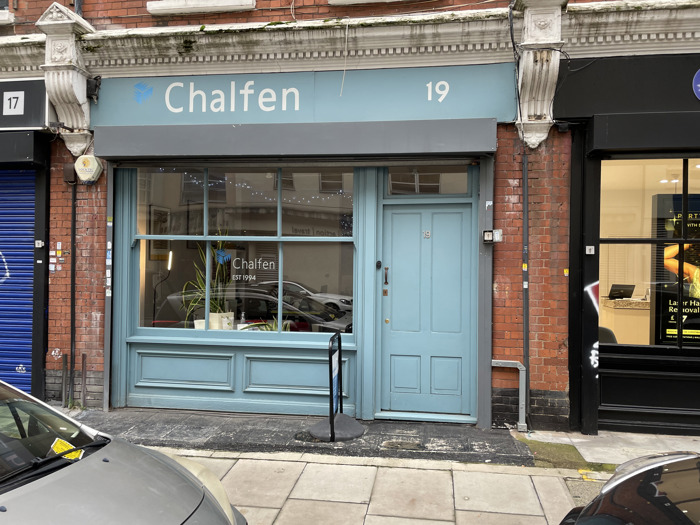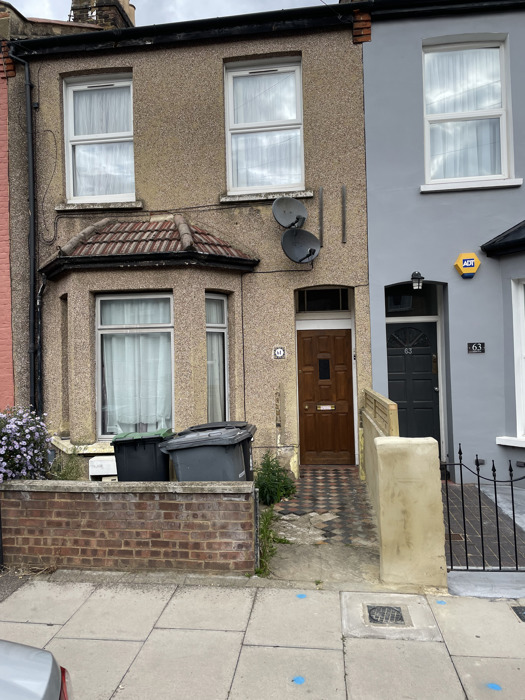The root of illegal betting: Britain's white label industry that not even the regulator oversees
The British Gambling Commission plays a key role in facilitating the illegal gambling industry through a white label system that grants licences to shady betting companies. Yet, the commission denies it is their role to oversee whether over 750 of these companies hold a licence in the jurisdiction in which they are based.
Play the Game’s investigative series on the impact of illegal gambling has encompassed the globe. From opaque Asian-facing gambling houses and cyber slave camps to weak Caribbean regulation that cheats bettors, the root of this nefarious trade lies in Europe and more specifically, Britain.
From the City of London and a company registry that provides a cosy, unquestioned corporate home for illegal betting companies to an island in the Irish Sea that provides soft licences and space for server farms, Great Britain is, arguably, the home of the illegal betting industry. Here we find the data companies that supply the live information to keep in-play wagering turning over, the top football clubs with global fanbases which advertise illegal betting, and not least the negligent regulators.
At the heart of the illegal betting problem are the 750 white label licences provided by the British Gambling Commission. These white labels allow companies licensed by the Gambling Commission to rent that licence to a number of often shady operators, and - as we shall see later - there is little to no oversight by the Gambling Commission of these companies.
The operators are often hiding behind a maze of trusts and letter-box offices like 978 Tech, which operates the 8XBet betting operation that sponsors Manchester City. Another operator, XCM, has a UK office down a side street in the City of London. No one from XCM is there of course. The place is simply a letter drop.

No one is in when Play the Game calls at the offices of XCM. Photo: Steve Menary
Elsewhere in London, Asplins Road was supposedly the official address of Lydia Alexandra Gordon, an official director of 1XBet, the giant Russian-controlled, Cypriot-based betting company that was declared bankrupt for not paying out winnings. Except no-one was home when Play the Game visited. The bins had not even been emptied.

The former director of 1XBet, Lydia Alexandra Gordon, claimed to have her office in this building in London. Photo: Steve Menary.
Business as usual even though the licence disappears
Even licenced betting companies can be hard to locate. Midnight Gaming is a case in point. Based on an industrial estate in Poole, Dorset, the company provided white labels for brands such as Asian-facing betting brand W88, who sponsored Fulham and last summer paid out to sponsor another Premier League side, Burnley.
The club agreed this deal in June 2023 with W88, which operates under a UK licence held by Midnight Gaming. At the time, Burnley director Stuart Hunt said:
“Following lengthy discussions, we are pleased to confirm W88 as our front-of-shirt sponsor for the upcoming season. As a newly promoted club, a partnership such as this plays a significant role in helping us to compete in the Premier League. W88 have established successful relationships with several Premier League clubs and sports brands across the globe and we have been impressed by their experience, knowledge and proactive nature in this area. I’m looking forward to developing a successful partnership together over the course of the season.”
According to the register of the British Gambling Commission, Midnight Gaming Limited no longer holds an active gaming licence. Screenshot.
However, on 10 February 2024, Midnight Gaming surrendered its licence to Britain’s Gaming Commission. With no British licence, W88 is unable to operate in the country, but Burnley continues to wear the W88 logo.
Play the Game approached Burnley for a comment and received no answer. A visit to Midnight Gaming’s office in Dorset in late February found more closed and locked doors. A solitary letter nestled in the letterbox but, yet again, no one was home to answer any questions.
Isle of Betting
The Isle of Man is located in the Irish Sea between Liverpool and Ireland. Home to a population of around 85,000 people, the island is a self-governing British Crown dependency with a degree of independence that has produced a home for swathes of betting companies and their data servers.
The island is home to The Gaming Platform (TGP Europe), which is one of the biggest white label providers and runs 19 UK-facing websites for murky, mostly Asian-facing, betting companies.
A licensed UK-facing white label site is not intended to attract UK customers but allows the gambling brand to advertise in the UK. As there are no controls on what domains can be advertised, gambling brands can use football’s popularity to build betting websites which target jurisdictions where gambling is illegal.
The Gambling Commission refuses to answer questions about TGP Europe
Over time, the Gambling Commission has demonstrated an iron commitment to avoiding any type of scrutiny about the 750 white labels provided by the nearly 40 licensees operating under its banner.
As part of this investigation, Play the Game sought to get to the bottom of TGP’s relationship with the Gambling Commission through a series of strategic freedom of information (FOI) requests in 2023.
The requests sought to reveal basic corporate details around TGP Europe by asking for straightforward and practical information that could if released - and of an adequate standard - give consumers confidence that they were dealing with a trusted operator that had been subject to the rigorous due diligence of a competent regulator.
We submitted almost two dozen requests for information and have yet to receive a single satisfactory response.
On all but one occasion, the commission rejected our requests outright or, perhaps more worryingly, it said that it did not have the requested information, which demonstrates frightening gaps in the commission’s knowledge of the secretive offshore bookmakers it legitimises. At its most generous, the commission provided information already in the public domain.
One example really highlights the obstructionist nature of the commission.
In 2022, the Australian Media and Communications Authority (ACMA) investigated one of TGP's white label partners and found it in breach of the federal Interactive Gambling Act. At our request, the ACMA released a cache of documents that showed the workings of that investigation.
By contrast, the British Gambling Commission would not even reveal if it had been alerted to this investigation. In response to a freedom of information request, it explained its reasoning with this: That to do so would inhibit its own law enforcement capabilities.
Below, you can see a list of all the freedom of information requests we have made to the British Gambling Commission.
Play the Game's freedom of information requests to the British Gambling Commission
|
Request |
Result |
|
Emails that included any of the following terms: 8XBet, Ryan Li, 6686, 8868 |
REFUSED |
|
TGP licence agreement |
REFUSED |
|
Due diligence documents for TGP Europe, 8XBet, BK8 or 6686 |
REFUSED |
|
Additional conditions attached to the operating licence of TGP Europe as a result of February's sanction against the licensee |
REFUSED |
|
Documents (such as ministerial briefings, reports or spreadsheets) that outline/compile the Commission's findings into money laundering concerns related to white label operations |
Generic details from an informal briefing paper were provided. |
|
Ultimate ownership of TGP Europe Limited |
INFORMATION NOT HELD |
|
8XBet corporate organisational chart |
INFORMATION NOT HELD |
|
Email correspondence with representatives of Jennings Bet discussing TGP Europe |
REFUSED |
|
Email correspondence to/from qooglobal.com or 8xbet.com email accounts |
INFORMATION NOT HELD |
|
Details of those who signed TGP’s contracts with 8XBet and 6686. |
INFORMATION NOT HELD |
|
Turnover, unique visitors and total page views for each of TGP Europe's white label licensees |
INFORMATION NOT HELD |
|
Correspondence sent to TGP Europe, 8XBet and/or 6686 flagging concerns about criminal activity or poor compliance |
REFUSED |
|
Customer demographic information for 8XBet and 6686 |
INFORMATION NOT HELD |
|
Number of users of 8XBet or 6686 who have had their identities a) requested, b) verified; c) rejected |
INFORMATION NOT HELD |
|
General guidance given to white label licensees, providers, operators or other relevant groups relating to the advertising of white label licensee products at sporting events |
INFORMATION NOT HELD |
|
Value of licence fees paid by TGP Europe |
REFUSED |
|
Value of licence fees paid by TGP Europe’s white label partners |
INFORMATION NOT HELD
White label partners do not pay fees as they are not licensed by the Commission and not transacting with customers. |
|
Gross gambling yield (GGY) for each of TGP Europe's white label licensees |
INFORMATION NOT HELD
White label partners are not licensed by the Commission and not transacting with customers. |
|
Clarity on the commission’s response to previous requests that white label partners are "not transacting with customers". |
AWAITING RESPONSE |
|
Clarity on how TGP could be fined for anti-money laundering (AML) and social responsibility failures related to its white label operations, when none of these have a functioning website. |
AWAITING RESPONSE |
|
Name or description of any documents containing the ultimate owner(s) of TGP white label partners 8XBet and 6686 |
AWAITING RESPONSE |
|
Correspondence from TGP Europe or 8XBet or a representative informing the commission of the Australian Communications and Media Authority’s investigation |
REFUSED |
|
Number of politically exposed people named in due diligence on TGP and its white label partners. |
REFUSED |
|
Correspondence with Australian Communications and Media Authority regarding AML or similar concerns about TGP Europe white label partner Stake, which is based in Melbourne |
REFUSED |
|
Number of politically exposed people named in due diligence on all white label operators. |
AWAITING RESPONSE |
|
The nationalities of all ultimate owners of white label license holders and partners. |
AWAITING RESPONSE |
|
Meetings with and gifts from TGP Europe |
AWAITING RESPONSE |
The Gambling Commission: It is not our job to control white labels
Similarly, the Gambling Commission has time and again demonstrated a lack of curiosity about who controls the bookmakers under its umbrella and an unwillingness to engage with the public about its decisions. Through its responses, it has demonstrated that it either doesn't understand the situation or doesn't want to stop the money flowing in from overseas operators keen to promote illegal gambling via British football.
To try and better understand this attitude, Play the Game sought a meeting with the Gambling Commission’s head of governance to raise the use of the white label system by illegal betting operators.
In this meeting, which was held over Zoom, we also wanted to talk about BOE United Technology Corporation, an unlicensed operator that owns 26 gambling brands, many of which operate UK-facing websites via white label agreements with TGP Europe that allow them to sponsor Premier League football clubs.
The Gambling Commission subsequently responded to the questions that we had posed in our online meeting with a six-page written reply. This response re-iterated our concerns and then for the most part basically cited large sections of the ongoing British Government review of the 2005 Gambling Act, which first began in 2020 and is being undertaken to better reflect the explosion in online betting, without answering our questions.
"The Commission has made clear, including through enforcement action, that licensees will be held to account for the activities of their white label partners," reads the Government’s terms of reference for the review.
However, in its response, the Gambling Commission argues that the responsibility for controlling the 750-odd white labels does not lie with the Gambling Commission but with those licenced companies that operate them, such as TGP Europe.
“Any activity on those ‘white label’ branded websites is the responsibility of the Licensee,” said the Gambling Commission in its response. “[H]aving reviewed the current risks and mitigations associated with white label arrangements, the Commission concludes that the existing legislative and regulatory framework provides sufficient controls,” it added.
The Gambling Commission did say that “concerns had been raised that WLs amount to ‘hiring out’ of gambling licences to third parties who are unlikely to be suitable to get a licence themselves. To this point, we have been clear in our published advice that failure to maintain adequate control of third parties can result in regulatory action including suspension or the loss of the operating licence.”
A relatively small fine to TGP from the Gambling Commission
Despite its major role in helping to facilitate the operation of illegal betting companies, TGP has only once been the subject of regulatory action in Britain.
In 2023, the British Gambling Commission fined TGP Europe 316,250 GBP for anti-money laundering (AML) and social responsibility failures.
The AML failures at TGP Europe included:
- Not having a money laundering and terrorist financing risk assessment which adequately addressed risks, such as customers providing false or stolen identification documentation and risks linked to complex or unusually large transactions
- Not adequately considering and mitigating the money laundering risks posed by their business-to-business relationships
- Having ineffective policies and procedures in relation to due diligence undertaken prior to white label agreements
However, the serious failures identified at TGP represented just 0.1 per cent of the total fines of 214.2 million GBP levied last year by the Gambling Commission on the betting industry.
Regarding BOE, the Gambling Commission says it searched its database and found nothing. This is disingenuous. BOE was never licenced in Great Britain, so obviously a search will return zero results. But four brands owned by BOE have advertised using UK football via white label agreements with TGP Europe.
BOE no longer holds a gambling licence anywhere. Its licence as a service provider to the gambling industry was cancelled by the Philippine Amusement and Gaming Corporation on 15 January 2024.The gambling brands it owns, such as Kaiyun which sponsors Chelsea and Nottingham Forest football clubs, are therefore unlicensed, unregulated and, under the terms of the Macolin Convention, illegal.
After this meeting, Play the Game sent three points of clarification and three subsequent questions. The Gambling Commission declined to answer.
Review of British Gambling Act does not mention reform of white label system
The practice of the white label system in enabling illegal betting companies to use football to target customers in countries where betting is illegal is, it seems, perfectly acceptable – at least to the Gambling Commission and the British Government.
In a review from 2023 of the Gambling Act, there was no mention of abolition or even any proposed reforms of the white label system.
Leading English clubs will have collectively heaved a sigh of relief at the decision to allow the white label system to continue as they can continue to accept sponsorship from illegal betting operators.
William Prochaska from the Coalition Against Gambling Ads, says: “It's shameful that our national sport and shady 'white label' arrangements are being used to export gambling harm, often to jurisdictions where online gambling is illegal. The practice hurts people in the UK too through normalising gambling and prompting UK consumers to bet.”
The suspicion amongst those who campaign against gambling advertising is that football lobbied to keep the status quo.
“It’s likely the Premier League lobbied against it to protect the sponsorship revenue,” says Matt Zarb-Cousin, who campaigns against the societal impact of gambling. “DCMS [The Department for Culture, Media & Sport] may have seen it as low risk as most of the operators aren’t UK facing anyway."
“Doing away with white labels would have reduced gambling sponsorship considerably. Instead, we got the voluntary commitment from the Premier League coming in a few seasons’ time and which only applies to the front of the shirt. If white labels were banned this would have had an immediate impact on the levels of sponsorship and would have prevented the Premier League being used as a springboard to promote online gambling in jurisdictions like China where it’s illegal.”
Play the Game asked the Premier League to respond to the allegation that it lobbied to keep the white label system and did not receive a reply.
Instead, the Premier League will be allowed to continue its relationship with the illegal betting industry, albeit downsized from shirtfronts to shirt sleeves. The impact of this on gambling’s visibility in UK football will be negligible.
As Play the Game previously reported, when Manchester City visited Villa Park on 6 December 2023 not a single second of the game passed without a gambling company being visible. Perimeter board companies must be rubbing their hands with glee at the prospects offered by the Premier League’s approach. The merry-go-round of facilitators that pair up famous footballers with illegal Asian-facing gambling brands will not only continue but is also likely to expand.
Many in the legal betting industry in the UK believe the white label system will eventually be abolished but with the Gambling Commission seeing nothing wrong with the current system and a general election due by the end of 2024, the chances of any change seem distant.
So, Britain will be able to maintain its role as a major hub in facilitating an illegal betting industry that is, as this series has shown, linked to money laundering, cyber scams, kidnapping and murder.





